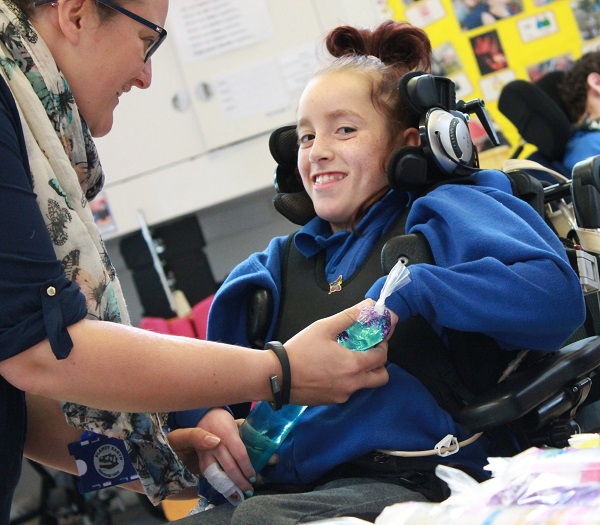A learner driven, fluid and inclusive assessment model: is such a thing possible? Simon Yates, headteacher at the Chailey Heritage Foundation thinks it is.

I am headteacher of a charity-run special school for children and young people with severe and complex medical, physical difficulties, with a wide range of cognitive ability. In November, Optimus Education’s Special Children magazine published an article about my school’s new CHILD (Chailey Heritage Individual Learner Driven) curriculum.
Since then I’ve presented at several national conferences on ‘life after levels’ in special schools, and our way of doing things. These presentations have each been specifically designed to provoke discussion, at the conference, and subsequently online. I have picked up many, many useful ideas and viewpoints from these, and I’m grateful for all the input. You see, while our curriculum is now in place and very popular with staff and parents, our methods of making judgements and reporting on learner progress are still very much in development.
The CHILD curriculum is based on a system of ‘profiling’ each learner. From these profiles parents, therapists and teachers work out the next steps for that young person. There is no bank of targets to pick from, no set number of targets and definitely no benchmarking progress against other learners – in our school or against national datasets (my bête noire!)
Added to this, given that so many things beyond our control can affect our pupils’ ability to make progress (positively as well as negatively), we have wanted to build in flexibility regarding the expectations of our learners. So how on earth are we able to put together an easy to read, rigorous, and above all meaningful set of ratings for management purposes and for governors? How can we prove that we are setting our expectations high enough when we aren’t comparing against other pupils?
Through trial and error we decided the best course of action was to turn the whole thing on its head. We’re no longer looking at how well we think the learner has done, we’re looking at how well we think we have done for that learner, taking all circumstances into account. For each learner, we have a panel meeting (Individual Panel Review (IPR)) once a year with me, the teacher, SALT, OT, Physio, TA and care staff if residential. Against each of the six or seven profiles we gave the following rating – based on what our expectations for the learner had been when we set the next steps:
However, given the complex and manifold barriers to learning for our young people we realised this didn’t work. So it morphed into the following, based on what progress we could see from the evidence:
However, once again, this didn’t quite work – we were still judging the child on their progress, which is very difficult given what these children go through in any particular year. Also, crucially for me as headteacher, that wasn’t really what I wanted to know. I wanted to know whether we’d done everything we possibly could. So currently (it may change again) we are going with this:
The panel discussions are really interesting, as well as being a fantastic forum for thinking up new ideas to support progress. It is wonderful to see how professionally honest everyone is now that we are focusing on our input and the success it can bring.
My assertion behind this way of measuring progress has turned out to be very controversial! I am putting forward the idea that if we can show that there was the very best possible input to the learner’s progress, then whatever progress the learner made, must have been the best possible. I have been told by many people that this is wrong – that we must start with ‘measuring outcomes’ – but, I ask again and again, measure against what?! And if anyone says P Scales I will cry!
As we head into the final year of implementation of the reforms, it's time for SENCOs to reflect on current success, set clear action plans for next steps and leave with a renewed focus on your provision.
Join us for the 15th annual SENCO Update, Thursday 25th May 2017 in London. Register now to secure your place!